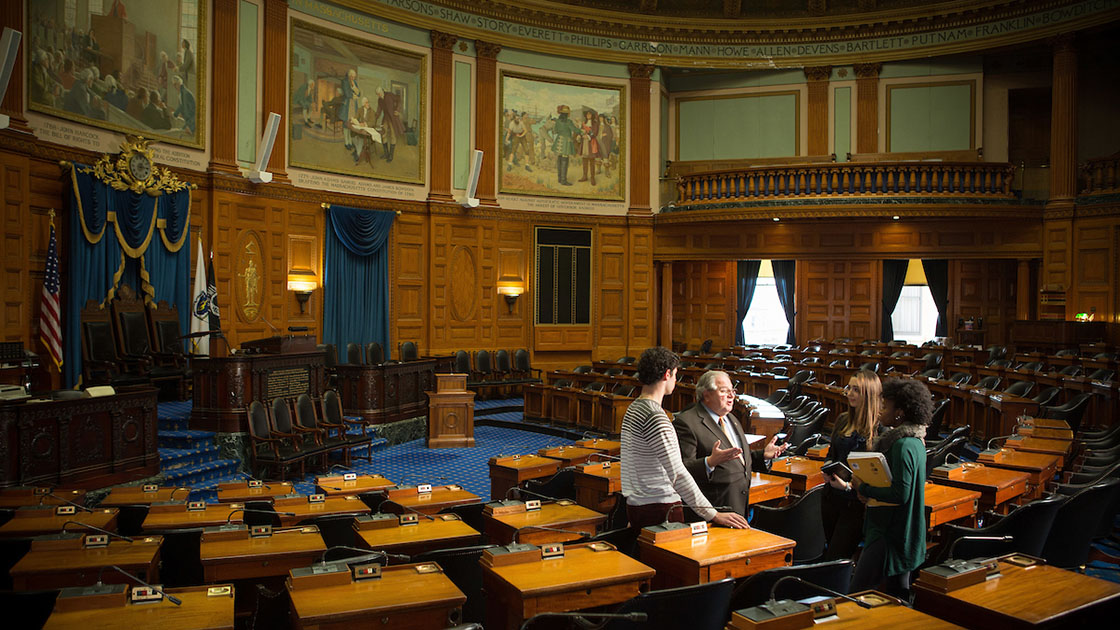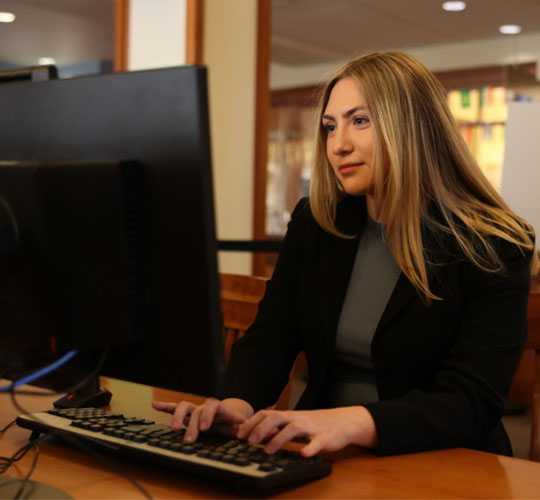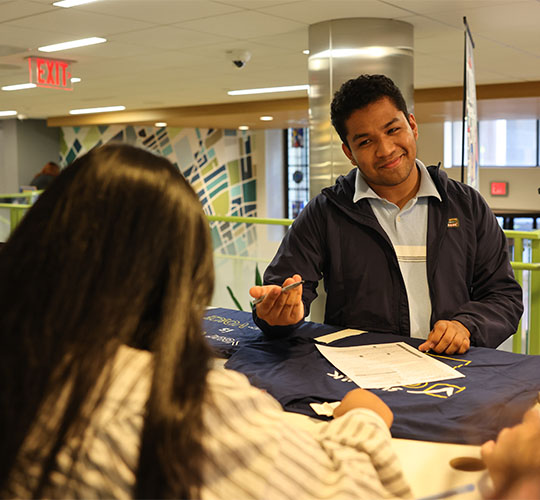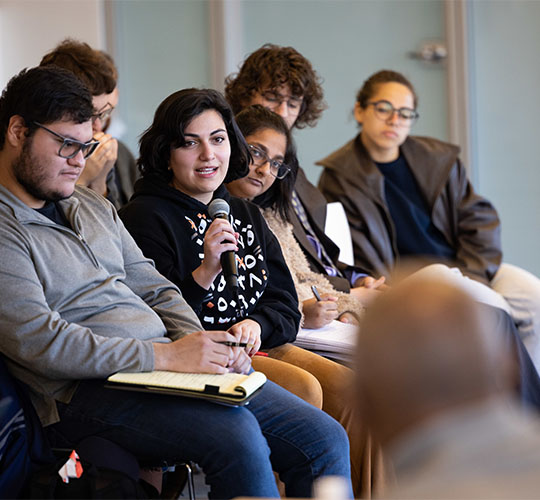Gain the knowledge and practical skills needed to begin your service in the legal profession through Suffolk’s undergraduate law program. Located in the heart of downtown Boston, our undergraduate law program teaches students the fundamental principles of our legal system and the various professional opportunities that await them in the legal field. Please note: Only licensed attorneys can practice law or give legal advice.
Through demanding classroom instruction and practical training, you’ll learn to think creatively, reason critically, act ethically, and express yourself persuasively in speech and writing. As a law major, you’ll embrace the professional ethics of service and develop sound judgment and approaches to help you navigate the rapidly-changing legal world.
On April 1, 2024, Suffolk University submitted a substantive change form to the ABA's Standing Committee on Paralegals to voluntarily relinquish its ABA approval. The ABA House of Delegates will take formal action on this matter at its August 2024 meeting. Thereafter, the Undergraduate Law Program will no longer be an ABA-approved paralegal studies program. Anyone graduating after August 2024 will not graduate from an ABA-approved paralegal studies program, but rather from our enhanced and expanded Undergraduate Law/Legal Studies program. Students graduating from the Undergraduate Law Program after August 2024 may not represent themselves as having graduated from an ABA approved paralegal education program.

Given Suffolk’s strong ties to the Massachusetts State House, it’s highly likely you’ll meet with a policymaker there in the course of your studies.




 Visit Us
Visit Us Request Info
Request Info Apply
Apply


